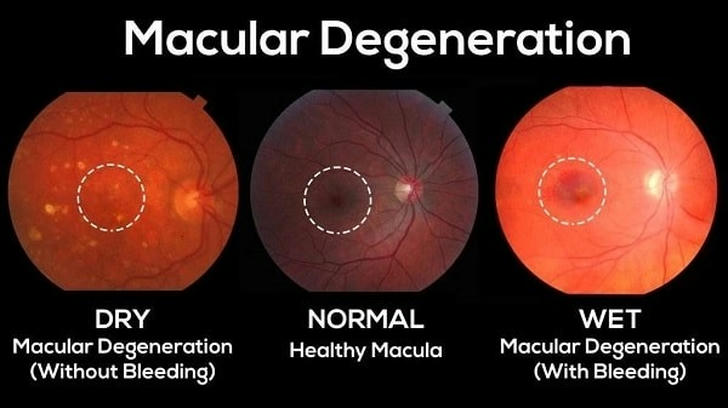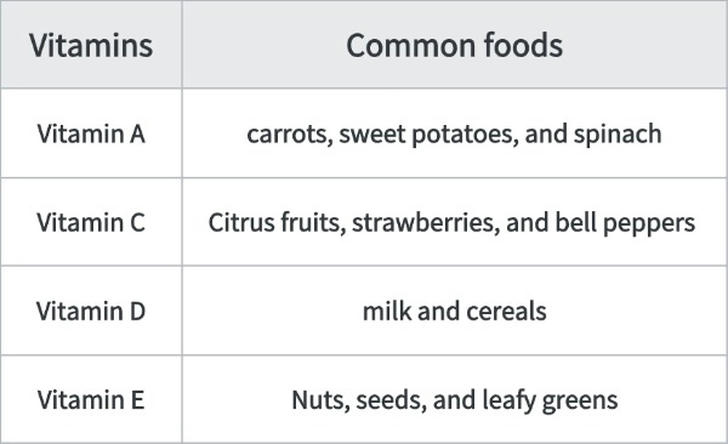Can Vitamins Help Prevent or Manage Macular Disease? What Science Says
Macular disease, particularly age-related macular degeneration (AMD), is a leading cause of vision loss among older adults. One area of growing interest is the role of vitamins and nutrients in supporting eye health. But can vitamins really help prevent or manage macular disease? Let’s dive into what science has to say.
Kevin has been taking these two vitamins for a long time and his vision is 20/20. He is 70 years old.
Understanding Macular Disease

The macula is a small but crucial part of the retina responsible for central vision, which allows us to see fine details, read, and recognize faces. Macular disease, such as AMD, occurs when the macula deteriorates, leading to blurred or lost central vision. There are two main types of AMD:
Dry AMD: The more common form, characterized by the thinning of the macula and the presence of drusen (tiny yellow deposits).
Wet AMD: Less common but more severe, involving abnormal blood vessel growth under the retina, which can leak fluid and cause rapid vision loss.
While there is no cure for AMD, certain lifestyle changes, treatments, and nutritional interventions may help slow its progression.
The Role of Vitamins in Eye Health

Vitamins and nutrients play a vital role in maintaining overall health, including eye health. Some vitamins have been specifically studied for their potential to protect the macula and reduce the risk of AMD. Here’s a closer look at the key vitamins and nutrients that science suggests may help:
1. Antioxidant Vitamins: A, C, and E: Antioxidants help protect cells from damage caused by free radicals, which are unstable molecules that can harm tissues, including those in the eyes.
Vitamin A: Essential for good vision, vitamin A supports the retina’s function and helps prevent night blindness. Foods rich in vitamin A include carrots, sweet potatoes, and spinach.
Vitamin C: This powerful antioxidant supports the health of blood vessels in the eyes and may reduce the risk of cataracts and AMD. Citrus fruits, strawberries, and bell peppers are excellent sources.
Vitamin E: Known for its protective effects on cell membranes, vitamin E may help slow the progression of AMD. Nuts, seeds, and leafy greens are great sources.
2. Lutein and Zeaxanthin: Lutein and zeaxanthin are carotenoids that accumulate in the macula, where they act as natural sunblocks, filtering harmful blue light and protecting the retina from oxidative damage.
Studies have shown that higher dietary intake of lutein and zeaxanthin is associated with a lower risk of AMD.
These nutrients are found in leafy greens like kale and spinach, as well as in eggs and corn.
3. Zinc: Zinc is a mineral that plays a crucial role in transporting vitamin A from the liver to the retina, where it is used to produce melanin, a protective pigment in the eyes.
Research suggests that zinc supplementation may help slow the progression of AMD in some individuals.
Foods rich in zinc include shellfish, meat, beans, and seeds.
4. Omega-3 Fatty Acids: Omega-3 fatty acids, particularly DHA (docosahexaenoic acid), are essential for maintaining the health of the retina.
Studies have found that a diet high in omega-3s may reduce the risk of AMD and support overall eye health.
Fatty fish like salmon, mackerel, and sardines are excellent sources of omega-3s.
5. Vitamin D: Vitamin D is known for its role in bone health, but emerging research suggests it may also play a role in eye health.
Low levels of vitamin D have been linked to an increased risk of AMD.
Sunlight exposure and fortified foods like milk and cereals can help maintain adequate vitamin D levels.
The AREDS Studies: A Landmark in Nutritional Research
The Age-Related Eye Disease Studies (AREDS and AREDS2), conducted by the National Eye Institute, are among the most significant research efforts exploring the role of vitamins in AMD.
AREDS1: Found that a specific combination of antioxidants (vitamins C and E, beta-carotene) and zinc could reduce the risk of advanced AMD by about 25% in people with intermediate or advanced disease.
AREDS2: Replaced beta-carotene with lutein and zeaxanthin, as beta-carotene was linked to an increased risk of lung cancer in smokers. The updated formula was found to be equally effective and safer for a broader population.
These studies have led to the development of AREDS-based supplements, which are widely recommended for individuals at risk of AMD.
Can Vitamins Prevent Macular Disease?
While vitamins and nutrients can support eye health, they are not a guaranteed way to prevent macular disease. However, a diet rich in the vitamins and nutrients mentioned above may help reduce the risk of developing AMD, especially when combined with other healthy lifestyle choices, such as:
Not smoking
Maintaining a healthy weight
Wearing sunglasses to protect against UV light
Managing conditions like high blood pressure and diabetes
Can Vitamins Manage Macular Disease?
For those already diagnosed with AMD, vitamins may help slow the progression of the disease, particularly in its early to intermediate stages. The AREDS2 formula is often recommended for individuals with AMD to help preserve vision and delay disease progression.
However, it’s important to note that vitamins are not a substitute for medical treatments, such as anti-VEGF injections for wet AMD. Always consult with an eye care professional before starting any supplement regimen.
Practical Tips for Incorporating Eye-Healthy Vitamins
Eat a Balanced Diet: Focus on foods rich in antioxidants, lutein, zeaxanthin, zinc, and omega-3s.
Consider Supplements: If you’re at risk for AMD or have been diagnosed with the condition, talk to your doctor about AREDS2-based supplements.
Protect Your Eyes: Wear sunglasses, avoid smoking, and manage underlying health conditions.
Get Regular Eye Exams: Early detection and intervention are key to managing macular disease.
Conclusion
While vitamins alone cannot cure macular disease, they play a significant role in supporting eye health and may help prevent or slow the progression of conditions like AMD. The AREDS studies have provided strong evidence that specific combinations of vitamins and nutrients can be beneficial for those at risk of or living with AMD.
By adopting a nutrient-rich diet, considering targeted supplements, and making healthy lifestyle choices, you can take proactive steps to protect your vision and reduce the impact of macular disease. Always consult with a healthcare professional to determine the best approach for your individual needs.
In the fight against macular disease, vitamins are a powerful tool—but they work best as part of a comprehensive strategy for eye health. Take care of your eyes today to enjoy clear vision for years to come!
